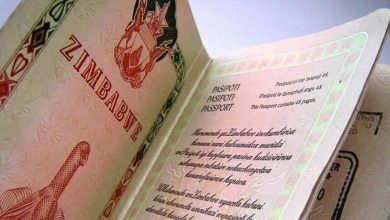
Zimbabwe, which stopped using a basket of foreign currencies as legal tender in favour of the Zimbabwe Dollar seems to be slowly returning to the multi-currency regime with a number of sectors now officially transacting in foreign currency.
Through the infamous Statutory Instrument 142 of 2019, the government on June 24 banned the use of foreign currency for all domestic transactions making the Zimbabwe Dollar the sole legal tender.
However, certain sectors of the economy such as tourism and mining were allowed to continue trading in foreign currency, anchored by the United States Dollar.
Despite the ban on foreign currency, some companies and organisations have continued to trade in it under cover.
The Zimbabwe revenue authority (ZIMRA) has also continued to charge duty especially for vehicle importers in foreign currency.
Prices of almost everything in the country are indexed to the green back, a development which has forced civil servants to demand an equivalent of US$475 for lowest paid employee.
The influence of the United States Dollar in the Zimbabwean economy is still dominant seven months after the monetary authorities out-lawed its use in the country.
In a development indicating the country will never fully de-dollarise, the Reserve Bank of Zimbabwe recently granted the National Railways of Zimbabwe permission to charge in foreign currency for goods exported under the Cost, Insurance and Freight (CIF) conditions.
Ironically, some exporting companies are not even trading in foreign currency.
The development has however not gone down well with some industry players who feel there is some discrimination on who is allowed to trade in forex.
“This is a clear indication of double standards,” said Bulawayo businessman, Nelson Moyo. “The government is not sincere on the forex issue. The economy is dollarising automatically.”
Moyo said the government’s double standards on forex was encouraging the informal sector to also follow suit.
“Government’s biggest fear is on the civil service wage bill but unfortunately this year’s drought will strangle production,” said Moyo.
“This can push inflation to unacceptable levels leaving government with no option but to dollarise again.
Recently commenting on the continued use of forex in Zimbabwe despite the government ban, economist, John Robertson, told CITE lack of trust in the local currency was forcing people to opt for other currencies.
“There is a lack of trust in the Zimbabwean dollar and people are opting for currencies whose value they trust; the Zimbabwe dollar is not stable,” said Robertson.
He, however, said it was still too soon to assess the impact of the ‘return to local currency’ considering the subdued manufacturing sector and failing agriculture.
But the Zimbabwe National Chamber of Commerce (ZNCC) Bulawayo chapter chairperson, Brighton Ncube, said they understood and appreciated that to every general rule there is an exception.
“It is against that background that we lobbied successfully on behalf of our members in the tourism sector so that they could trade in foreign currency,” he said.
“We continue to do so for our members in other sector where we believe there is a cogent case and the merits outweigh the demerits.
Ncube said they believed in a balanced approach when advocating for use of foreign currency, explaining charging local consumers in foreign currency may not be the solution for businesses.
“It will be more like chasing our tails,” he said.
“There is a chronic shortage of foreign currency in the country and expecting the ordinary citizenry to pay for services in scarce forex exacerbates the already dire situation. The solution lies in ramping up local production so that we increase our exports and earn the foreign currency.”
Added Ncube: “The source of foreign currency for business should not be the local consumer but foreign as the term depicts. In turn the forex earned from exports must then be channelled to the banks which will avail it to those businesses that require it.”






